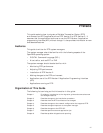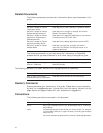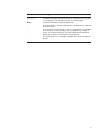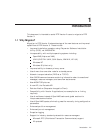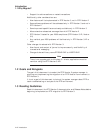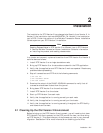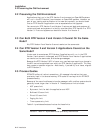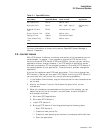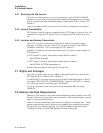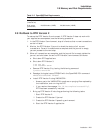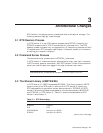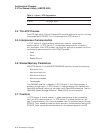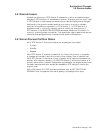
Installation
2.2 Preserving the Old Environment
2.2 Preserving the Old Environment
Applications that run in the RTR Version 2 environment on OpenVMS systems
will run in the RTR Version 3 environment on OpenVMS systems. However, as
part of your testing and verification of the new environment, you should check
that an RTR Version 2 application runs as expected after the upgrade.
You cannot mix RTR Version 2 and Version 3 routers and back-end systems; all
routers and back-end systems in a facility must be either RTR Version 2 or RTR
Version 3. Front-end systems can be either Version 2 or Version 3.
2.3 Can Both RTR Version 2 and Version 3 Coexist On the Same
Node?
No, RTR Version 2 and Version 3 cannot coexist on the same node.
2.4 Can RTR Version 2 and Version 3 Applications Coexist on the
Same Node?
Under most circumstances, RTR Version 2 applications will run in the RTR
Version 3 environment unchanged, and RTR Version 2 and Version 3 applications
can coexist on the same node, and exchange messages.
Because the RTR Version 2 API is frozen, any new features requiring a change in
the API cannot be exploited from within an RTR Version 2 application. This may
be a reason to consider migration. Additionally, if portability is an issue, migrate
to RTR Version 3.
2.5 Process Quotas
RTRACP buffers all active transactions. All message information that was
previously kept in the shared memory RTR cache is now kept within RTRACP
process memory.
Because of the use of mailboxes to handle message traffic, mailbox quotas should
generally be set larger than in Version 2. These quotas or limits include:
• AST queue limit
• Byte count limit for both the application and ACP
• Buffered I/O count limit
• Direct I/O count limit
• Paging file limit
• Timer queue entry limit
Table 2–1 provides estimates of values for these limits.
Note
Values in Table 2–1 supersede values previously documented.
2–2 Installation




